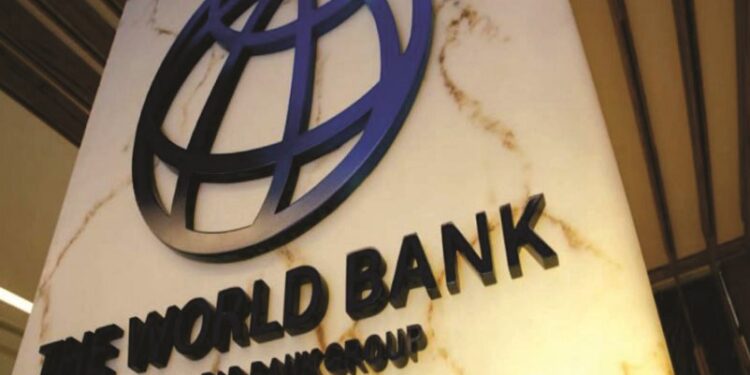Nigeria’s economy is poised for steady growth over the next two years, with the World Bank forecasting a 3.5% GDP increase in 2025 and a slight improvement to 3.7% in 2026.
These projections, outlined in the World Bank’s Global Economic Prospects report, paint a picture of cautious optimism for Africa’s largest economy as it navigates lingering domestic and global challenges.
The services sector, a consistent driver of Nigeria’s economic expansion, remains central to this growth trajectory. In 2024, the economy grew by an estimated 3.3%, fueled largely by financial and telecommunication services, which have been instrumental in offsetting weaker performances in other sectors. The World Bank attributed this uptick to key macroeconomic and fiscal reforms implemented in 2024. These reforms not only bolstered business confidence but also paved the way for revenue growth by eliminating the implicit foreign exchange subsidy through the unification of the naira’s exchange rate.

Tightened monetary policy by the Central Bank of Nigeria was another decisive factor, aimed at tackling the persistent inflation that has plagued the economy. Inflation, which had eroded purchasing power for years, is projected to decline gradually, providing a much-needed boost to consumption and economic stability. However, while monetary tightening has brought some relief, it also underscores the fragility of Nigeria’s economic framework, where structural issues continue to impede sustained recovery.
The oil sector, historically a cornerstone of Nigeria’s economy, is expected to see only modest gains in production over the forecast period. Despite this slight improvement, output will likely remain below the country’s OPEC quota. This underperformance in oil production, combined with vulnerabilities in the exchange rate and rising debt-servicing obligations, remains a key concern for policymakers and stakeholders.
The World Bank cautioned that while the projected growth figures are encouraging, per capita income growth will remain weak. This signals that the benefits of economic expansion may not be felt evenly across the population, particularly as structural challenges such as inflationary pressures and inadequate fiscal buffers persist. Rising debt costs further complicate the outlook, limiting the government’s ability to implement transformative policies or invest in critical infrastructure.
READ MORE: Experts Predict Nigeria’s Economy Will Soar by 3.5% in 2025
On a regional level, Nigeria’s economic performance continues to be pivotal for Sub-Saharan Africa. The region as a whole is forecasted to see growth accelerate from 3.2% in 2024 to 4.1% in 2025 and 4.3% in 2026. Nigeria, alongside South Africa, remains a major contributor to this trajectory. In 2024, the two largest economies in the region averaged 2.2% growth, buoyed by improved electricity supply in South Africa and higher oil production in Nigeria.

The World Bank’s projections reinforce the significance of Nigeria’s services sector, which not only accounted for 53.58% of the country’s GDP in the third quarter of 2024 but also grew by an impressive 5.19%. This underscores the sector’s rising influence in shaping the economic landscape, as services-led growth continues to outpace contributions from agriculture and industry.
Looking ahead, Nigeria’s economic prospects remain intertwined with its ability to address structural vulnerabilities, improve fiscal management, and sustain investor confidence. While the projected growth rates of 3.5% in 2025 and 3.7% in 2026 signal progress, they also highlight the pressing need for comprehensive reforms to ensure that growth translates into tangible benefits for the broader population.



